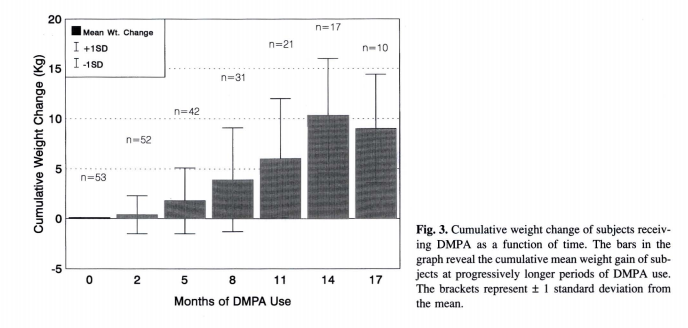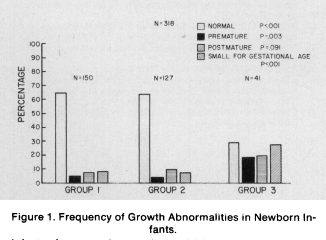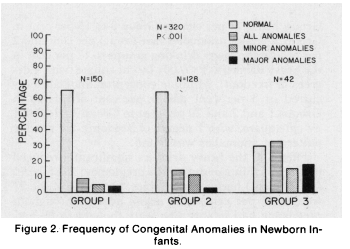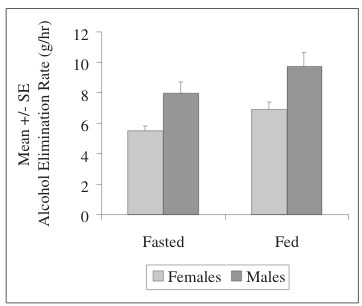When the topic of birth control is brought up, I almost always hear someone say “I stopped taking the pill because I was gaining weight” or “I would never go on the pill, I don’t want to get fat!” As I have never taken birth control I had no personal experience and have always wondered whether this was a legitimate side effect. The question made me think of the fact that correlation does not always equal causation. An example of this that we went over in class was the controversy over the belief that vaccines lead to autism. We learned that although there is absolutely no evidence backing up the idea that the vaccines are a cause, people might think it is because babies start to show signs of autism around the same time that they receive certain vaccines. This could also be true of the belief that birth control leads to weight gain. It is possible that many women begin to take the birth control pill as they enter college and also many women gain weight as they first start college. This is an example of a correlational third variable.
Possibilities:
Null Hypothesis: Birth control does not cause weight gain.
Alternative Hypothesis: Birth control causes weight gain.
As I began to shift through articles on this topic, almost all of them state that this belief is a myth and that there is no real evidence to back it up. I found a meta-analysis study that includes 49 different studies. Out of all of these trials, none of them found any valuable evidence to say that birth control causes to weight gain. However, that meta-analysis only provided studies for birth control pills and patches and there are other forms of contraceptives. This article in Women’s Health Magazine tells us that a certain injection of birth control can cause a considerable amount of weight gain. Another study on the same injection also resulted in evidence that it leads to weight gain in women.
Figure 3 shows the weight gain over time as the subject receives more of the birth control shots.
Method: Although their is not a lot of information out on the method behind the weight gain caused by the injection, the study above states that it could be due to the shot triggering an increase in appetite.
Conclusion: I think that the most rational way to react to these results is considering risk and reward. If you use the correct type of birth control, it seems as if there is no real risk to gaining weight. Therefore, if birth control is an important preventative measure for a specific person, it makes sense to take it considering there is no real evidence that all birth control leads to weight gain.


















